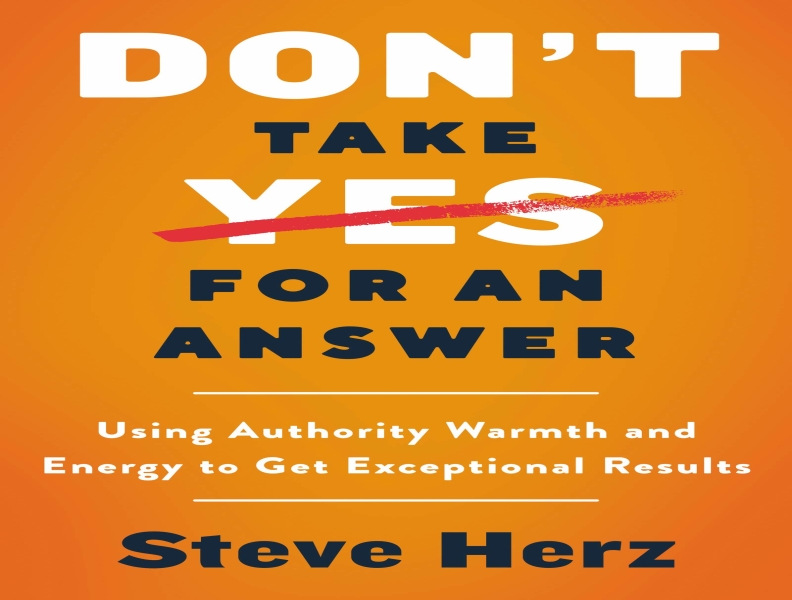Don’t take yes for an answer is fabulous advice when you stop and think about it. Many accomplished people say it was hearing no that motivated them to work harder and achieve their greatness.
I’m a big believer in positive psychology, the yes and ethos of improv comedy and embracing life like Shonda Rhimes in My Year of Saying Yes.
But sometimes…yes can lead to complacency. Sometimes when we are looking for yes we are really looking for validation instead of honest, constructive feedback or advice.
So, when Steve Herz sent me a note saying he’d written a book: DON’T TAKE YES FOR AN ANSWER: Using Authority, Warmth, and Energy to Get Exceptional Results (Harper Business) I wanted to hear more.
Steve is an agent and founding partner of IF Management (a nod to Rudyard Kipling, which of course I love) a talent agency specializing in news and sports journalists. I’ve enjoyed working with Steve and his team for close to 25 years.
Until now, I never knew how sympatico we are. One of my mantras is hard skills get you in the door, soft skills get you the job (and help you keep the job) and Steve lays this all out in his book demonstrating that connectability is the single biggest factor to make it to the top.
Steve breaks down this career-defining skill to three key communication strategies he calls AWE:
- the Authority you exhibit
- the Warmth you convey
- the Energy you exude and bring out in others
Sound familiar? If you’ve coached with me or read my book you know I call it the Charisma Equation: Presence, Power and Warmth (courtesy of Olivia Fox Cabane).
I can’t stress this enough. Steve says that the difference between a career that sputters and one that soars – whether you’re a manager, salesperson, CEO, or national broadcaster – is developing your AWE.
Is signing with an agent on your vision board? Steve says AWE is the prism through which he observes, assesses, coaches, and grows every single one of his clients. He listens for it when he’s reviewing video and voice overs.
I asked Steve:
BBA: Have you ever dropped or chosen not to sign a client because they lacked AWE?
SH: Yes, many times. We have met (until Covid) every single client we’ve signed over the past twenty years and it because a mutual weeding out process on both sides. Many potential clients are mostly looking for an agent who is a full on cheerleader. They don’t want someone representing them who isn’t blind to any flaws. So, when we start getting deep into what we think they can improve before they sign, you can tell who is right for this kind of relationship. And because it’s so central to how we operate and what we believe is a core to our value to them, it won’t work unless everyone is on the same page.
BBA: What was the best/most impactful feedback you ever received?
SH: In the summer of 1990, after two years at Vanderbilt Law School – when Turner Smith, the Managing Partner of the summer associate legal program at the law firm Curtis Mallet, told me that I should not consider a career in the law.
It forced me to think about whether this was the best/right career for me…and pretty quickly I realized he was right about his assessment.
BBA: please share an example of a client who changed the course of their career by mastering AWE. What was the before and the after transformation?
SH: Dan Shulman was a very good play by play broadcaster on ESPN and about 15 years ago, he started to really examine his energy especially in the big moments in games. He went back to the big moments and listened on tape. When he thought he should be at a 10 out of 10 (and thought he was), the rewind showed that he was actually at a 7. So, he had to amp it up to feel like he was at a 14 to get to 10. Now, he’s one of the best big moment (and highest profile) guys in the business. That small change produced a huge upward career arc.
Please re-read that last sentence: That small change produced a huge upward career arc. #mastery




